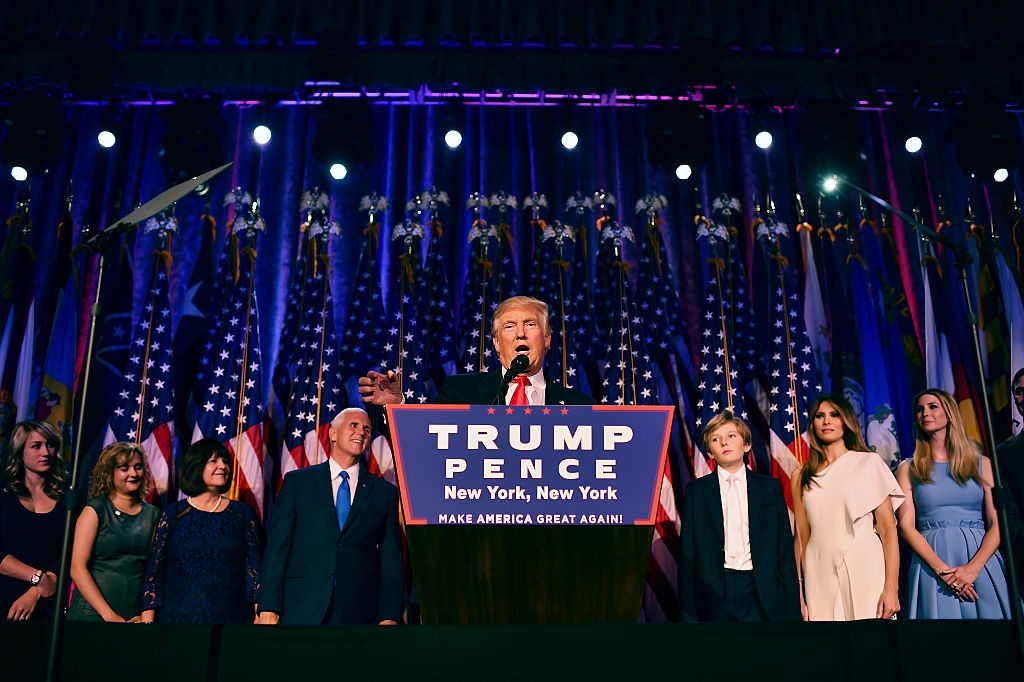With the inauguration of Donald Trump just over the horizon, renewed interest is being paid to the president-elect’s position on the North American Free Trade Agreement and how a Trump administration may impact the local and national economy.

During the campaign, Trump repeatedly promised to renegotiate the 1993 trade deal, which he has described as “the worst trade deal in history.” If the U.S.’s neighbours don’t agree to renegotiate it, he says, he would move to scrap it completely.
“I’m going tell our NAFTA partners that I intend to immediately renegotiate the terms of that agreement to get a better deal for our workers,” Trump said in a campaign speech. “And I don’t mean just a little bit better – I mean a lot better.”
“If they do not agree to a renegotiation, then I will submit notice under Article 2205 of the NAFTA agreement that America intends to withdraw from the deal.”
With Republicans controlling both chambers of Congress, Trump is in a better position to follow through than past presidents who’ve made similar promises.
Such a move would be catastrophic for Canada’s economy, says Mike Moffatt, an economist and Assistant Professor of Business, Economics and Public Policy at the Ivey Business School.
“It would have a large impact, larger than the 2008 recession,” Moffatt said. “Export Development Canada suggests that it could be, Canada-wide, about 4 per cent of GDP, which would be a very severe recession. It would even be larger in southwestern Ontario and the London region because we are such big exporters of not just manufactured goods but agrifood as well, which would be another sector put at risk.”
While it’s unclear just how much of the bluster and rhetoric exhibited during the campaign will turn into actual administration policy, Moffatt says London-area residents should be concerned about the prospect given the amount of manufacturing in the region that depends on NAFTA.
“We assemble cars, we assemble other things here, and we use parts from the United States and Mexico in that assembly, so anything that puts that supply chain in jeopardy is a real concern to the London region,” Moffatt said.
“Absolutely we should be concerned about this and we should hope that the discussion about ripping up NAFTA and possibly renegotiating it was just campaign bluster and won’t come to be.”
Observers say a president could easily pull out of the trade agreement, but that wouldn’t automatically restore trade tariffs which would require congressional action and would potentially be a contentious process.
Trump may also face unintended negative consequences for withdrawing, says Gerry Macartney, CEO of the London Chamber of Commerce.
“Canada and the U.S. are each other’s largest trading partners, so you just don’t ignore the other. He needs us as much as we need him,” said Macartney. “If you look at NAFTA alone, there are some nine-million jobs associated with that deal. You just don’t tear up a deal and threaten nine-million jobs, that’s quite the opposite of what he claims to want to do, and that’s rebuild America.”
Should the United States withdraw from NAFTA, American manufacturers and businesses would feel the impact through lower exports and sales as a result of tariffs. It would also result in an end to bilateral dispute resolution.
“I think we’ve seen on many occasions presidents or campaigns that promise a lot of things ahead of time, and yet, find it difficult to deliver once in office, and I’m hoping that’s the case here,” said Macartney. “Clearly London could be impacted, with our connection to the auto sector and a lot of what that might entail, and the defence cluster that we have here.”
“It’s our duty to make sure that he understands, and that his administration understands, you can’t not have a trade agreement with Canada, it’s his largest trading partner. It’ll get tweaked, it’ll get adjusted. What I like about the language is he’ll negotiate, and I think that’s exactly what you do in those trade deals, you negotiate the deals.”
On Wednesday, Canada’s ambassador to Washington told journalists in a conference call that if Trump wanted to sit down and renegotiate, America’s neighbours to the north would be ready to talk.
“We’re ready to come to the table,” said David MacNaughton, adding that while Canada believes the agreement has benefited the three countries, “everything can be improved.” He stopped short of detailing what Canada would seek at the discussion table, and said the original Canada-U.S. trade agreement predating NAFTA wouldn’t simply disappear should the U.S. withdraw.
Moffatt described the Ambassadors’ announcement as “the right approach,” and said picking a fight with Trump’s administration with a ‘no this is non-negotiable’ stance wouldn’t work.
“Donald Trump is not the kind of person that making those threats would be an effective strategy,” Moffatt said. “I think we need to show a willingness to work with the Americans and openness to work with the Americans, but also a hope that it doesn’t come to that.”
“I think the upside, or the potential path out of this, is that the Trump administration might focus their attention on China or countries in Asia instead of ripping up NAFTA. If we show we’re willing to work with the Americans, maybe their attention goes somewhere else instead of on NAFTA.”
The Trans-Pacific Partnership trade agreement is almost guaranteed to be consigned to the scrap heap. He has also promised to drastically increase tariffs on Chinese goods making their way to America.
International trade experts have questioned the legality of many of Trump’s trade proposals, noting they may contravene World Trade Organization regulations.
Donald Trump will take office as the 45th President of the United States on Jan. 20, 2017.
— With files from Monique Scotti of Global News








Comments